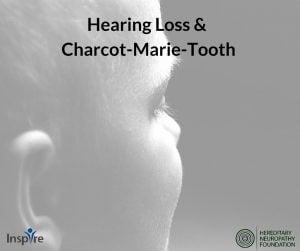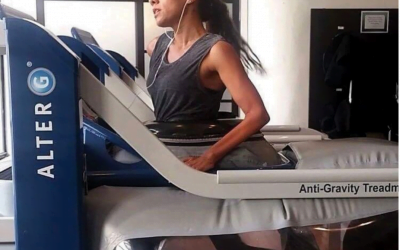 For the past two years, the Inspire community members have continued the discussion about hearing loss and CMT. It’s remarkable how we can come together and share the challenges we face and realize we’re not alone.
For the past two years, the Inspire community members have continued the discussion about hearing loss and CMT. It’s remarkable how we can come together and share the challenges we face and realize we’re not alone.
Even more importantly, our collaborative voice becomes stronger through community. Our shared stories help show a connection between CMT and the symptoms we experience, such as hearing loss. Sensorineural loss, or hearing loss, can be unilateral (in one ear) or bilateral (in both ears). Hearing loss is caused by damage to the nerve pathways from the inner ear to the brain, also known as the cochlea.
Hearing aids work for some CMT patients with sensorineural loss. Cochlear implants may be a better choice for those with more severe hearing loss, or for patients who no longer find hearing aids helpful.
While a hearing aid simply amplifies sound, cochlear implants convert the sound to electrical impulses that are then transmitted to the inner ear. This process gives people the ability to understand speech without having to read lips.
Most health insurance companies cover the cost of the implants. An audiologist associated with a cochlear implant clinic should be seen for an evaluation.
HNF is interested in learning more about the causes of hearing loss and collecting data on what forms of CMT affect hearing. If you are a CMT patient experiencing hearing loss, please consider joining HNF’s patient registry GRIN. Your information will help advance the research that could lead to future treatments and cures.
You can join the registry click here.
You can also email us at [email protected] with any questions or comments. And please join us in our Inspire Community. We’d love to hear from you! Click here!











I have CMT, inherited from my mother. My lower legs have been affected with drop foot so I wear ottobock braces that help my walking immensely. I, too, have experienced hearing loss. I wear hearing aids, but as time has passed I do not feel that they are helping. Everything is loud and echoey and I struggle with following conversation. I have been tested and am a candidate for a cochlear implant. I have read about several others that have gone this route but am uncertain as to whether this is a viable option for me—-will it improve my hearing or not at all?
Is there a way to differentiate CMT hearing loss from age related hearing decline? I am elderly with CMT type 2 and have hearing aids which I hate. My CMT was not diagnosed until recently so I can look back and see all sorts of symptoms/indicators that were just shrugged off…including hearing issues often called “not paying attention.”
Hi Hope,
I’m an audiologist and also have CMT. If your hearing loss is in the inner ear (hair cells and hearing nerve), then it can be hard to differentiate if it is age related or CMT related. It is likely a combination of the two. Noise exposure can also contribute to hearing loss. If your hearing loss is treatable with hearing aids, I would recommend considering it. Most insurances do not cover the cost of hearing aids, but some will contribute to a portion of the cost. Hearing aids have been shown to decrease listening effort, increase memory and attention, help with tinnitus or ringing in the ears, and help reduce stress/fatigue/social isolation/depression, etc.
Hope this helps!
Kelsey
I have CMT inherited from my mother which has affected my feet and lower legs and may have affected my hearing as well. My hearing has become very bad and started when I was in my late mid-20s. My loss of function in my feet and lower legs started to affect me in my mid-40s and has progressed significantly so that walking without an aid is almost impossible now. I am now 62. I use a Phonak hearing aid which helps my hearing problem immensely but without it I cannot really communicate at all any longer. I cannot say for certain whether the hearing loss is from CMT or not but I do not think it was environmentally caused. My mother had CMT very badly and it started to affect her in her very early 20s with loss of foot/leg and hands/arms function and she lost the ability to use both to a significant degree early in life. She did not have any noticeable hearing loss and I have had no noticeable affects on my hands.
Robert,
Thank you for sharing your story. When you have some time you should join the registry your information will be utilized to move forward research and clinical trials that could lead to future treatments and cures for various forms of Charcot-Marie-Tooth.
I have the same problem with feet, legs. and hands my hearing aid does not help. I stay at home because there is no communication/